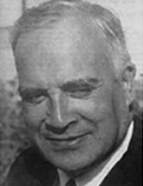

Alongside his work as a professor and researcher, he took an active part in various international history congresses, where he presented papers, such as the Congress of the Portuguese World (Lisbon, 1940); ‘S. Martinho de Dume' (Braga, 1950); the “Historical Congress of Medieval Portugal” (Braga, 1960) and the First Luso-Spanish Days, “Poverty and Assistance to the Poor in the Middle Ages” (Lisbon, 1972); the Second Congress of Guimarães (Guimarães, 1981).
He was a corresponding scholar of APH since 1938 and number scholar since 1946; Full member of the Sociedade de Geografia de Lisboa [Lisbon Geographical Society] since 1940 and Corresponding Member of the Academia das Ciências de Lisboa [Lisbon Academy of Sciences] since 1962. He was also a member of the Real Academia de la Historia de Madrid since 1944, the Real Academia Gallega de Coruña since 1945, the Instituto Histórico e Geográfico de S. Paulo [Historical and Geographical Institute of São Paulo] (Brazil) and several other institutions. In 1986, for his last work, Formação do Estado Português, he was awarded the P. M. Laranjo Coelho Prize by the APH. He died at his grandparents' house in Marmoiral, in Vila Meã (Amarante), on 10 December 1988, at the age of 85. Leaving behind almost two hundred published works, including books, articles in magazines and dictionaries, collaborations in collective works, editing of texts and documents, critical reviews (three dozen), biographical profiles, communications to congresses, speeches, lectures, reports on holiday courses at the School of Arts and Humanities of Coimbra, multiple interventions.
A tireless researcher and author, in whom it is impossible to distinguish the professor from the historian, he was a man of great dynamism and initiatives in favour of history, its teaching and its dissemination, which he saw 'as an apostolate': secretary and later president of the Institute of Historical Studies of his Faculty (founded in 1911 and today called the Instituto de História Económica e Social [Institute for Economic and Social History]), he is responsible (in collaboration with Paulo Merêa and Damião Peres) for founding the Revista Portuguesa de História (Coimbra, since 1941), the creation of the Estudos de Humanidades (Sá da Bandeira, 1970) and the Boletim do Arquivo da Universidade de Coimbra (since 1973). For RPH in whose first issues the medieval theme predominated, TSS wrote 7 critical reviews in 1941 (volume I), 8 in 1943 (volume II) and 6 in 1947 (volume III).
This work is financed by national funds through FCT - Foundation for Science and Technology, I.P, in the scope of the projects UIDB/04311/2020 and UIDP/04311/2020.
